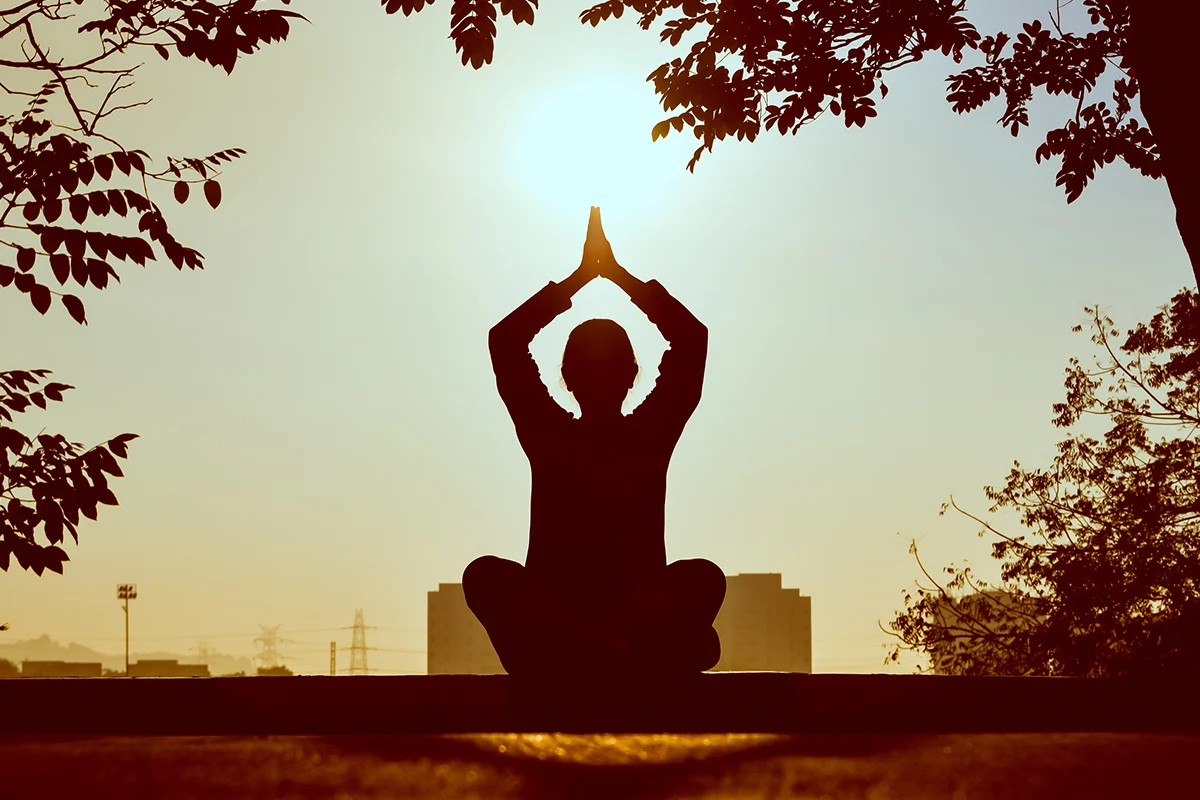Photo: Jill Wellington
In the fast-paced and demanding world we live in, stress has become a way of life for many of us. The constant juggling of work, personal life, and various responsibilities can leave us feeling overwhelmed and drained. Additionally, never-ending negative news from around the globe negatively impacts our physical and mental wellbeing.
If you find yourself longing for a more peaceful and harmonious existence, you've come to the right place. In this blog post, I try to explore twelve valuable tips that can help us relieve stress and create a more balanced life. These practical strategies will empower you to regain control, nurture your mind and body, and embrace a more serene and fulfilling lifestyle.
1. Identify the sources of your stress
One way to tackle stress is to identify the sources of it. Is it work-related? Personal issues? Money problems? You may begin to address the source of your stress once you are aware of it.
See if you can identify any remedies or coping techniques by writing down the root causes of your anxiety. Sometimes, simply acknowledging what's bothering you can be a helpful first step in managing your stress levels.
2. Practice relaxation techniques, such as meditation, deep breathing, or yoga
When we experience stress, our body reacts by releasing anxiety hormones that can affect our physical and emotional health. Practicing relaxation techniques, such as meditation, deep breathing, or yoga, can be incredibly beneficial to counteract these effects.
Meditation involves sitting quietly and focusing your attention on your breath or a specific word or phrase to calm your mind and reduce stress. Conversely, deep breathing involves taking slow, deep breaths from your diaphragm to slow your heart rate and lower blood pressure.
Yoga combines physical movement with mindfulness and deep breathing to promote relaxation, reduce stress, and improve flexibility and strength.
Even just a few minutes of these techniques a day can significantly affect your strain levels and overall well-being. So find a quiet space, take a deep breath, and give it a try!
3. Engage in physical activity and exercise regularly
One of the most effective ways to relieve pressure and promote a balanced life is by engaging in regular physical activity and exercise. Not only does exercise help reduce the level of cortisol, an anxiety hormone, but it also releases endorphins, which are natural mood boosters.
Even moderate exercise, like walking, jogging, or cycling, can help reduce tension and improve your overall well-being.
Make it a habit to move your body for at least 30 minutes a day, five times a week. Not only will you feel better physically, but you'll also improve your mental health and boost your mood.
Photo: Athena
4. Eat a healthy and balanced diet
Our diet also affects our emotional and physical health. Try to keep a well-balanced diet with lots of fresh fruits and vegetables, as they are high in essential vitamins and minerals that our body needs to function properly.
Avoid processed foods, excessive sugar, and alcohol; opt for whole foods instead. This not only nourishes your body but also helps you to feel fuller and more satisfied. Remember to hydrate with plenty of water throughout the day as well. A healthy and balanced diet can do wonders for your stress levels and overall well-being.
5. Get enough quality sleep
Getting enough quality sleep is crucial to living a stress-free life. However, it's not just about getting a certain number of hours of sleep; it's also about the quality of your sleep. These tips can help you sleep better:
- Stick to a regular sleep schedule, even on weekends;
- Create a relaxing bedtime routine, like reading a book or taking a warm bath;
- Ensure a peaceful and pleasant resting environment;
- Before going to bed, avoid using devices because their blue light can make it difficult to sleep;
- Avoid caffeine, alcohol, and large meals before going to bed;
- Try to unwind mentally before bed by practicing mindfulness or relaxation techniques.
Remember, getting enough quality sleep is not just a luxury but a necessity for a healthy and energized life. So, prioritize giving yourself the rest your body and mind need to function at their best.
6. Set realistic goals and prioritize tasks
Start by making a list of everything that needs to be done and then prioritizing each item based on its level of importance and urgency. Next, break down larger tasks into smaller, more manageable ones, and give yourself plenty of time to complete each. Finally, remember to be realistic with your expectations and avoid overcommitting yourself.
Photo: Hassan Ouajbir
7. Take breaks and practice self-care
It's simple to overlook taking breaks and engaging in self-care in the daily flurry. But making time for yourself is crucial for relieving strain and living a balanced life.
Whether it's taking a short walk, enjoying a cup of tea, or simply meditating for a few minutes, taking regular breaks throughout the day can help you recharge and refocus. Self-care activities like yoga, massages, or even just taking a relaxing bath can also do wonders for your mental health.
8. Establish limits and learn to say no
It can be difficult to say no to people or activities, but you should set boundaries to prioritize your well-being. When you take on too much, it can lead to increased pressure and overwhelm.
Saying no can be empowering and actually increase respect from others. It's okay to prioritize your needs and not stretch yourself too thin. However, set clear boundaries and communicate them effectively to avoid burnout and maintain harmony in your life.
9. Connect with others and seek support
It's important to have a support system in place when you’re dealing with stress. Connect with friends and family, or join a support group to share your experiences and find common ground.
Talking with others can help alleviate feelings of isolation and provide new perspectives on handling stress. Whether it's reaching out to potential mentors or networking with peers, having a strong professional network can also help you manage tension and achieve your career goals.
Photo: Andrea Piacquadio
10. Make time for hobbies and leisure activities
Whether it's playing sports, gardening, or painting, finding a mindful hobby that you enjoy can be a great way to relax and de-stress. Set aside some time each day or week to focus on the things you like, and don't feel guilty about taking that time for yourself.
By prioritizing your hobbies and leisure activities, you'll be able to find a healthy balance between work and play and reduce your stress levels in the process.
11. Simplify your life and declutter your space
Sometimes, the clutter and chaos in our physical environment can contribute to the anxiety and overwhelm we feel in our daily lives. Simplifying your life and decluttering your space can go a long way in promoting a sense of calm and balance.
Start small by tackling one area at a time, whether it's a desk, a closet, or a room in your home. Get rid of anything you don't need or use anymore, and organize the items you keep in a way that makes sense to you.
Not only will a simplified and organized space make it easier to keep track of your belongings, but it can also help you feel more in control and at peace in your daily life. Plus, it's a good opportunity to donate or sell items that someone else could benefit.
12. Seek professional help if necessary
If you've tried everything and still feel overwhelmed and stressed, it may be time to seek professional help. Talking to a therapist or counselor like Be In Health can provide coping mechanisms, stress management techniques, and a supportive space to discuss your concerns.
To help connect you with the right provider for your needs, Leadar offers a B2B database of professionals from different spheres, including healthcare. You don't have to face this alone; reaching out for help is a sign of strength.
Let's summarize...
We are all living in a hasty and demanding world, and every day stress has become an inevitable part of our lives. Whether it's work pressure, family responsibilities, or personal issues, the strain can take a toll on our mental and physical health if not managed properly.
While it’s not always possible to eliminate it entirely from our lives, the 12 tips discussed here can help to manage and reduce stress levels. Thankfully, these tips apply to everyone.
Lots of love,
Liz









